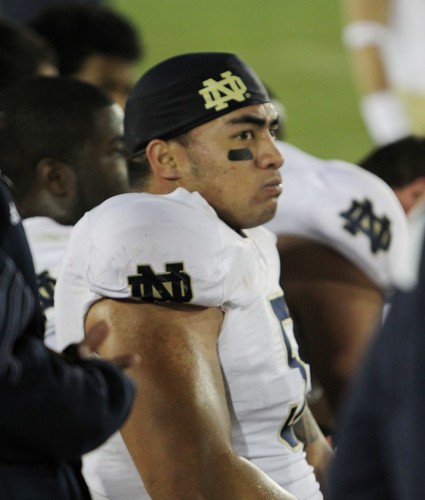Journalism is all about trust — trust of a reader in its news outlet, trust of a reporter in his sources, trust of an audience to determine what is truth-telling.
No matter if that trust is a political correspondent's in his congressional insider, or a sportswriter in describing often intangible emotions and events he did not witness, trust is key. The sportswriters who perpetuated the Manti Te'o Fake Girlfriend story weren't wrong in what they wrote, incorrect in what they published or doing less of their job because they were duped — allegedly as Te'o was by presumed mastermind Ronaiah Tuiasosopo.
These writers didn't fall victim to bias or shoddy reporting or lack of sources. They feel victim to trust.
What will come of it? Perhaps some soul searching by the writers, and the profession in general. Will will be more willing to take someone's word as fact? Or will we question everything, verify more than everything, and not publish what we cannot explicitly understand?
Tim Layden of Sports Illustrated says the Te'o hoax will fundamentally alter sportswriting, for better or for worse. The problem is not that there may be less fact checking; it's that stories — great, emotional, heart-tugging, responsive stories — may be lost along the way. Some things can be easily verified. Others must be accepted based on the trust of a source, because it comes straight from his or her memory. This doesn't make truth any less ascertainable. It just puts more onus on the writer to trust his sources.
The analysis has already begun. If you want a good one, read Richard Deitsch's interview with a pair of Pulitzer Prize winners for their thoughts on what the hoax means to the profession. Changes are coming, whether they are instigated by the individual writer or not. Change has to occur.
But will trust — and the stories they bring — vanish in the meantime?
 |
| Photo courtesy of flickr |
No comments:
Post a Comment